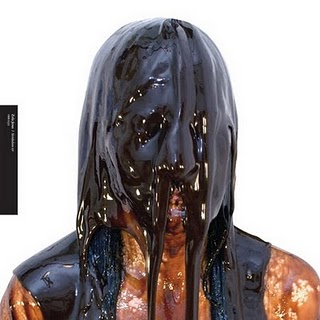Of all the recording processes I’d like to be able to see, Zola Jesus’ is definitely near the top. Zola Jesus – aka Nika Roza Danilova – employs a mysterious approach to her music, making everything ambiguous at best. Undulating tones drown the air during her songs but I’d be hard-pressed to actually put an instrument to the sound I’m hearing. It might be a low bass note on a cello strung out to last forever or a distorted guitar fed through numerous pedals so that all recognizable sound is lost. It might be just note on a keyboard held and given plenty of reverb. Whatever these noises are that occupy the majority of space on her songs, they are gloriously fitting for her style.
The ambiguity is key here. In a nutshell Danilova’s work may not be exceedingly complex or convoluted but it always feels full and overwhelming thus trying to dissect it seems pointless and would likely only lead you to be more confused as to what makes the music. Once you latch onto a tone chances are it will change. But it’s not always going to change just by another key being pressed or note being played. Chances are it will alter itself through Danilova’s voice pressing up against it, combining with it, both becoming one completely different monstrous being.
And yes, I can only confirm what everyone else says and immediately notices about her work – Danilova’s voice is astounding. It’s the primary focus here and overpowers everything around but without letting the music become irrelevant. But the sheer power of it is hard to describe as it’s not just something you hear, it’s something you feel all the way through your body. When she reaches the soaring notes in the choruses your body will shiver in amazement.
On “I Can’t Stand” she sings “I can’t stand to see you this way” and it sounds like what she’s seen has broken her down to her knees like she’s seen the horrid true revelation of life in one simple image. But when she continues “It’s gonna be alright” she has an almost optimistic tone in her voice because it sounds she will literally do anything to make the situation better. This sort of emotion is present in nearly everything she says. Her lyrics might not exude any significantly deep meaning on top but the lyrics come across as important as they are indented in your mind through sheer force. On “Trust Me” she sings the line “I told you trust me” repeatedly throughout the song but even at such a grand scale, the nuance is still there and makes for the underlying and rewarding effect as she goes from sounding like she’s once again reassuring the character in the song to being furious that they didn’t heed her words.
In another nutshell, Danilova writes pop songs. In a recent interview posted on her website she talked of taking influence from divas of the past and present like Tina Turner and Alicia Keys and this influence finds its way in her own work. The only thing is that even though heartbreak might be as present in her work as in any other lonely over-zealous pop song, she presents it in a dark chasm of noise that the interpretation of the work on Stridulum as pop seems wrong at first glance and unnecessary upon further consideration.
It doesn’t really matter what Zola Jesus is classed as; the power of her work is what people will identify with. It’s hard to describe her songs in relations to those by other artists other than herself. On Stridulum she is noticeably clearer and more fine tuned compared to the compressed and often tinny sound of her debut album The Spoils. The inclusion of live drums also makes a tremendous difference, acting as a raft for her voice to propel itself off of while also retaining the alarming pace of her songs.
Nonetheless, it seems more suitable to describe the music like acts of nature as opposed to anything else conventional. On the title track to the EP the eerie noise that sounds like the distant voices of ghosts disappears before the chorus hits with a huge wave of black noise that sounds like it should be accompanying some huge dark spell cast by a wizard in a fantasy film. On final track “Manifest Destiny” it sounds like the music is falling in on itself but she still sings with her music behind her. And once again, when the chorus comes in on a thunderous cloud of noise and drums, it sounds like she’s reached the end of the universe. “How could we survive?” she bellows amidst the music, which for once almost manages to match her in sheer force. “Don’t worry about it / Don’t worry about a thing” she finishes, once again trying to console those troubled and unsure. If she reassured you the first time, you’ll sure as hell believe her by the end.

